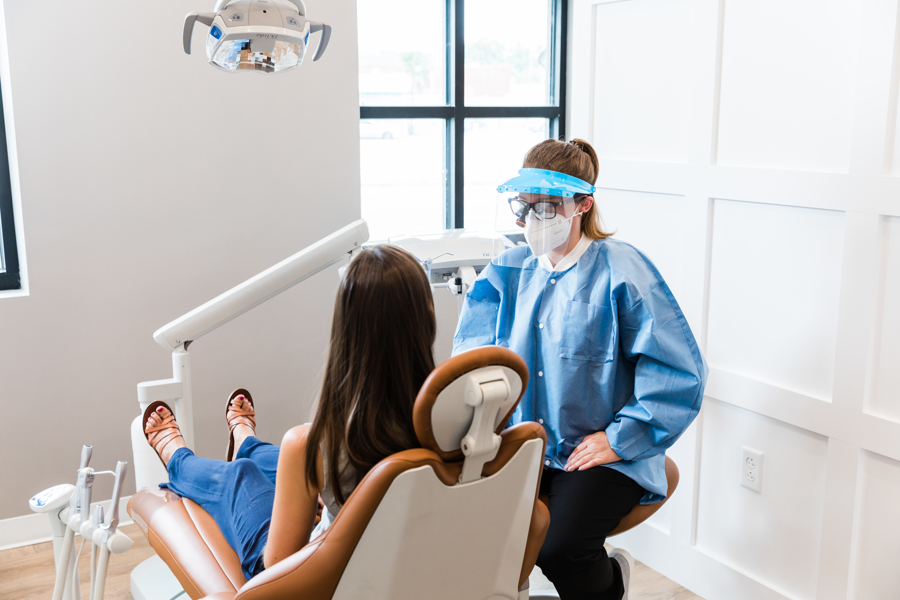Expert Tips for Choosing the Right Dentists Eugene for Your Dental Health
Expert Tips for Choosing the Right Dentists Eugene for Your Dental Health
Blog Article
Discover the Series Of Dental Issues Dentists Frequently Take Care Of
From the widespread trouble of tooth cavities triggered by microbial task to the a lot more dangerous progression of gum tissue condition, oral specialists need to be proficient at very early discovery and treatment. Tooth sensitivity, commonly resulting from used enamel, includes another layer of complexity, while the very early recognition of oral cancer can be life-saving.
Tooth Cavities and Dental Caries
While keeping ideal oral hygiene is important, cavities and tooth decay remain common issues that dental experts often deal with. Dental caries, additionally known as cavities, are triggered by the demineralization of tooth enamel because of acid-producing germs in the mouth. These germs thrive on sugars and starches from food and drinks, producing a cycle of acid attacks that gradually wear down the enamel and dentin layers of teeth. If left untreated, dental caries can result in substantial dental complications, consisting of infections and tooth loss.
To detect cavities and tooth decay, dental practitioners use a mix of aesthetic exams, oral X-rays, and sometimes laser fluorescence tools. For even more innovative degeneration, a dentist may require to get rid of the jeopardized tissue and recover the tooth with dental fillings made from products such as composite material, amalgam, or porcelain.
Precautionary steps are critical in combating tooth cavities and tooth decay. Routine oral examinations, correct brushing and flossing techniques, and a balanced diet reduced in sweet foods and beverages are basic techniques that sustain dental health and wellness and decrease the threat of cavities.
Gum Tissue Condition

Periodontitis happens when plaque, a sticky film of bacteria, hardens into tartar and accumulates below the periodontal line. This creates the gums to retreat from the teeth, creating pockets that end up being infected. As the body's immune system fights the bacteria, the bone and connective cells that hold teeth in location are damaged down. The threat factors for gum disease include bad dental hygiene, smoking cigarettes, diabetes, and hereditary proneness.
Dental professionals detect periodontal illness through professional assessment and gum penetrating to measure pocket depths around the teeth. Treatment might include scaling and root planing to remove tartar and microorganisms from tooth surfaces and under the gum tissues.

Tooth Level Of Sensitivity
Beyond periodontal illness, another usual dental issue that individuals frequently experience is tooth sensitivity. Defined by a sharp, transient discomfort in response to stimuli such as warm, cold, sweet, or acidic foods and beverages, tooth sensitivity can dramatically impact a client's high quality of life.
A number of factors add to the growth of tooth level of sensitivity. Hostile cleaning, using rough toothpaste, and the consumption of acidic foods and beverages can wear down enamel. Furthermore, dental procedures, split teeth, and gum condition can subject the dentin. To alleviate tooth sensitivity, dentists may suggest using toothpaste developed for delicate teeth, fluoride treatments to enhance enamel, or dental bonding to cover subjected dentin. In severe cases, advanced treatments such as gum grafts or origin canals could be essential.
Eventually, resolving tooth sensitivity requires an extensive technique that includes both preventative steps and targeted therapies to alleviate pain and protect the oral frameworks.
Dental Cancer
Dental cancer, a potentially dangerous and serious condition, often flies under the radar in regular oral care discussions. This type of cancer can affect any component of the dental cavity, including the lips, tongue, cheeks, flooring of the mouth, soft and difficult palates, sinuses, and throat. Early detection is crucial for successful therapy, yet many situations are detected at advanced phases because of refined first signs and symptoms.
Misaligned Bites
Misaligned bites, likewise called malocclusions, are a typical oral concern that can significantly impact both oral wellness and overall top quality of life - dentist in eugene oregon. These conditions take place when the upper and lower teeth do not line up effectively, causing troubles in attacking, eating, and even speaking. Malocclusions can be classified into numerous kinds, imp source consisting of overbites, underbites, crossbites, and open attacks, each providing one-of-a-kind obstacles that call for customized therapy techniques
The reasons of misaligned attacks vary and can consist of genetic aspects, early loss of main teeth, thumb sucking, and injuries to the jaw. Symptoms often consist of discomfort or pain in the jaw, frequent biting of the internal cheeks, and an enhanced danger of dental cavity and gum illness as a result of trouble in maintaining dental hygiene.
Dental professionals and orthodontists use a series of treatments to address misaligned attacks, from typical dental braces and clear aligners to advanced surgical procedures in severe instances. Early medical diagnosis and therapy are important to avoid difficulties such as temporomandibular joint (TMJ) problems and unusual endure teeth. Through thorough assessment and tailored treatment strategies, dental specialists play an essential duty in fixing malocclusions and enhancing individuals' dental function and visual appeals.
Verdict
Dental caries and tooth degeneration result from microbial task that endangers tooth enamel, while gum disease can intensify from gingivitis right here to extreme periodontal conditions. Tooth level of sensitivity entails pain from thermal stimulations, necessitating particular treatment.
To detect dental caries and tooth degeneration, dentists employ a combination of visual exams, dental X-rays, and often laser fluorescence devices.Beyond gum condition, one more common oral issue that clients regularly run into is tooth level of sensitivity. In addition, dental procedures, fractured teeth, and gum illness can subject the dentin. To reduce tooth sensitivity, dentists may recommend utilizing tooth paste created for sensitive teeth, fluoride treatments to strengthen enamel, or oral bonding to cover subjected dentin. Dental caries and tooth decay result from microbial task that compromises tooth enamel, while gum condition can escalate from gingivitis to severe gum conditions.
Report this page